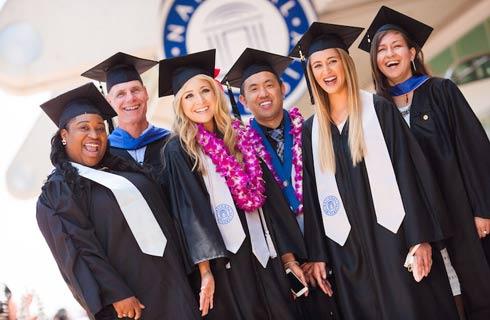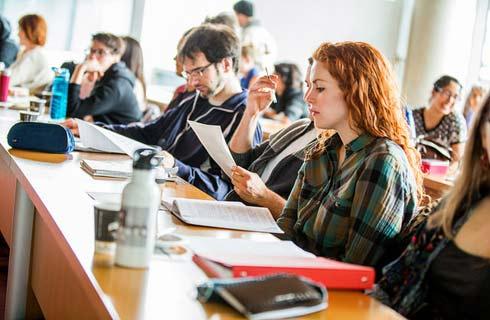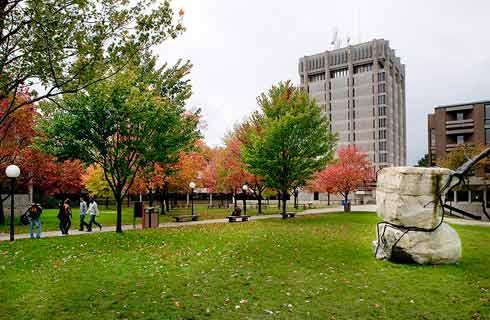- IDP China>
- 课程库>
- 人文科学>
- 神学与宗教研究>
- 神学>
- Master of Theological Studies - Mediterranean and Near Eastern Studies
神学硕士-地中海和近东研究
Master of Theological Studies - Mediterranean and Near Eastern Studies

学历文凭
Masters Degree

专业院系

开学时间

课程时长

课程学费

国际学生入学条件
IDP—雅思考试联合主办方

雅思考试总分
7.0
- 雅思总分:7
- 托福网考总分:95
- 托福笔试总分:600
- 其他语言考试:NA
CRICOS代码:
申请截止日期: 请与IDP联系 以获取详细信息。
课程简介
The cultures of the Mediterranean and Near East have exerted a formative influence on identity and practice in a number of religious traditions, including Judaism, Christianity, and Islam. Students in this concentration are invited to learn a variety of disciplinary approaches to the study of religion as part of the cultures of the Mediterranean and Near East. Although there are no chronological limits to the focus of this concentration, the course offerings focus primarily on ancient and medieval cultures and languages. The subjects studied through a variety sources including textual, linguistic, material, geographic, and visual evidence. The courses offer a variety of approaches drawn from the disciplines of history, philology, visual arts, literary analysis, gender analysis, biblical studies, post-colonial studies, and the social sciences. Students are particularly encouraged to diachronically examine the reception and intersection of cultural and social forms and institutions.
相关申请
 预科
预科 奖学金
奖学金 实习机会
实习机会 在校学习
在校学习 跨境学习
跨境学习 校园授课-线上开始
校园授课-线上开始 在线/远程学习
在线/远程学习
开学时间&学费
学费信息仅供参考,请与IDP联系以获取详细信息
| 开学时间 | 时长 | 学费 | 地点 |
|---|
学校排名

世界排名121
数据源:
泰晤士高等教育世界大学排名
关于范德堡大学

严格学术问题的前提美国范德堡大学要求男生在观看足球比赛时穿西装、打领带,女士佩戴珍珠,并且要求一名异性同伴。虽然在一次赛事上不必满足所有的要求,但美国范德堡大学已经将南部的优雅和现代社会的态度成功结合在了一起。设立于1875年的honor code管理的所有学术活动,也使得范德堡的学生可以在没有监考的情况下进行考试。 这里几乎所有的人都可以找到自己想要的东西和美国的音乐之城毗邻,这里有蓝调、乡村和摇滚音乐以及各式各样的餐馆、剧院和出售自制啤酒的酒馆,从校园步行即可到达。乡村音乐粉丝们绝对不应该错过的是这里的名人纪念堂。纳什维尔的边界之外是大雾山、提供野炊设施的州立公园、美丽的湖泊和冬天滑雪场。最好的公路旅行线路包括到孟菲斯(埃尔维斯的家乡)、新奥尔良(参加狂欢节)、路易斯维尔(肯塔基州赛马会)和亚特兰大。
本校相关课程
其他相关课程

Bachelor of Philosophy (Ph.B.) and Bachelor of Sacred Theology (S.T.B.)
 美国天主教大学
美国天主教大学学历文凭
Double Major Degree
开学日期
课程费用总额


Bachelor of Arts in Catholic Studies
 圣路易斯大学 - INTO USA
圣路易斯大学 - INTO USA学历文凭
Bachelor Degree
开学日期
课程费用总额


神学哲学博士-圣经
 福特汉姆大学
福特汉姆大学学历文凭
Ph.D.
开学日期
课程费用总额


Master of Arts in Theological Studies - St. George
 多伦多大学
多伦多大学学历文凭
Masters Degree
开学日期
课程费用总额


神学硕士
 达拉斯大学
达拉斯大学学历文凭
Masters Degree
开学日期
课程费用总额


Doctor of Philosophy in Divinity - Theology
 芝加哥大学
芝加哥大学学历文凭
Ph.D.
开学日期
课程费用总额
















